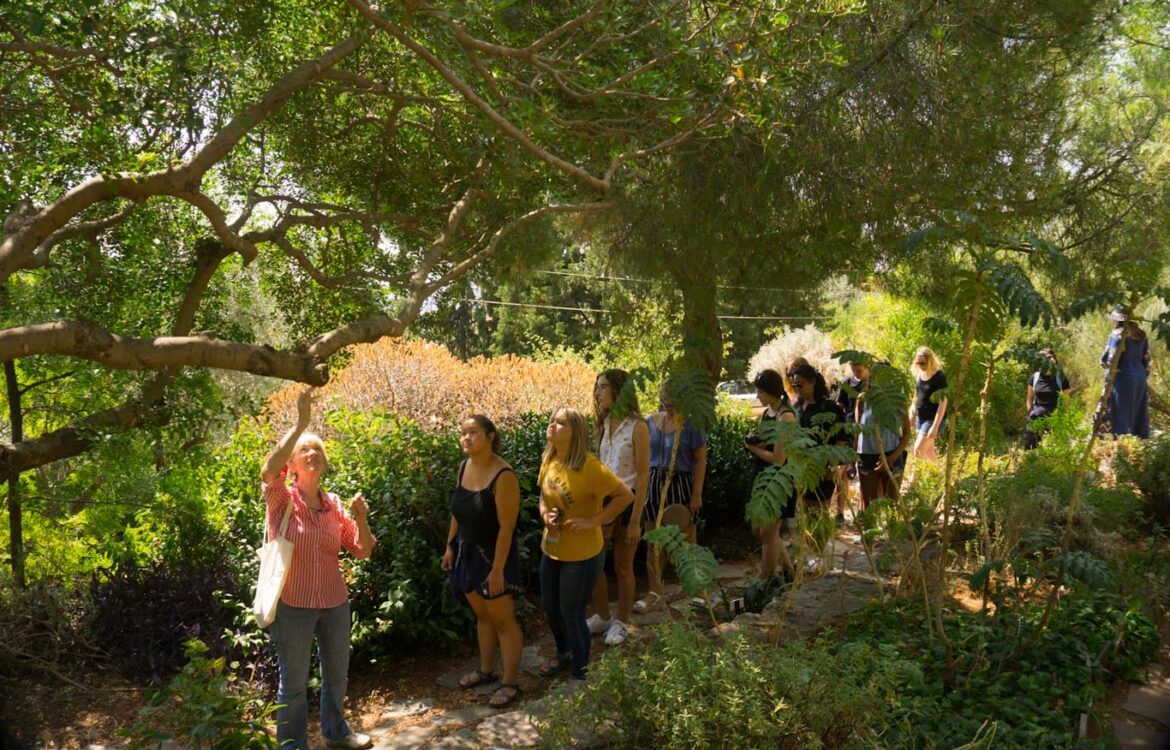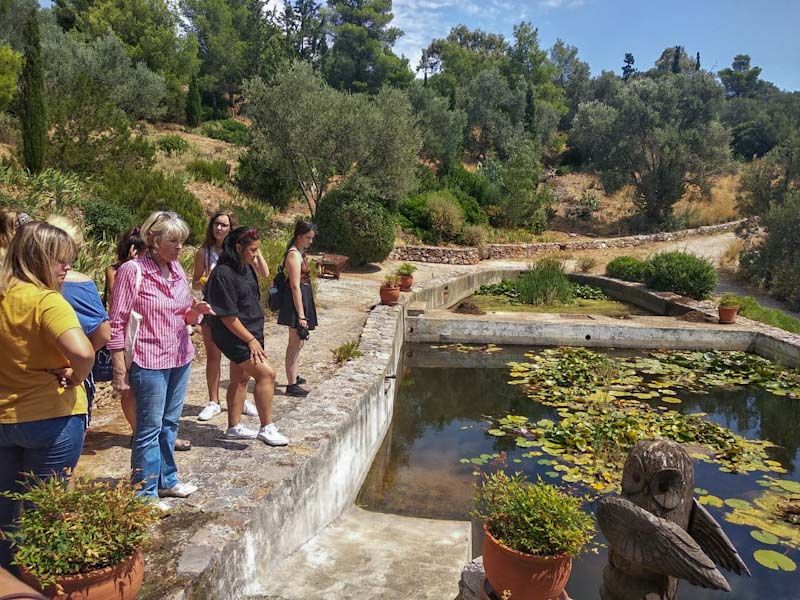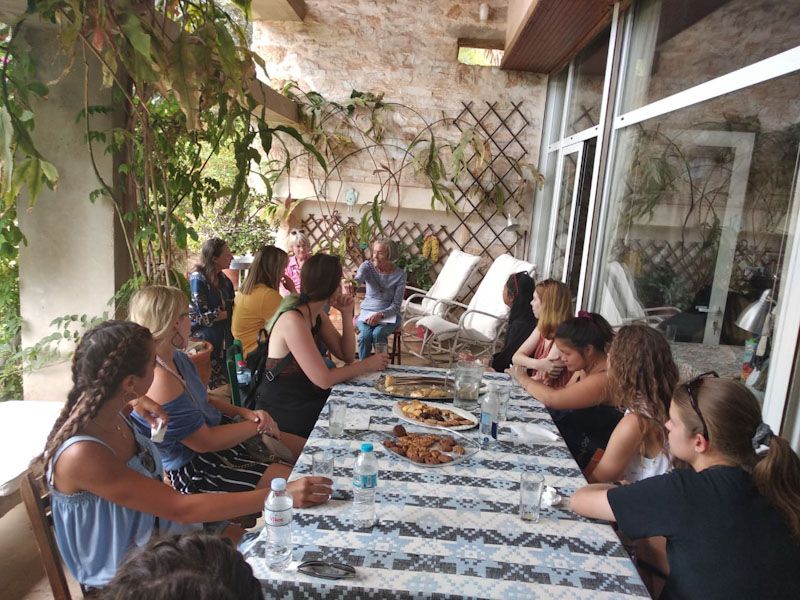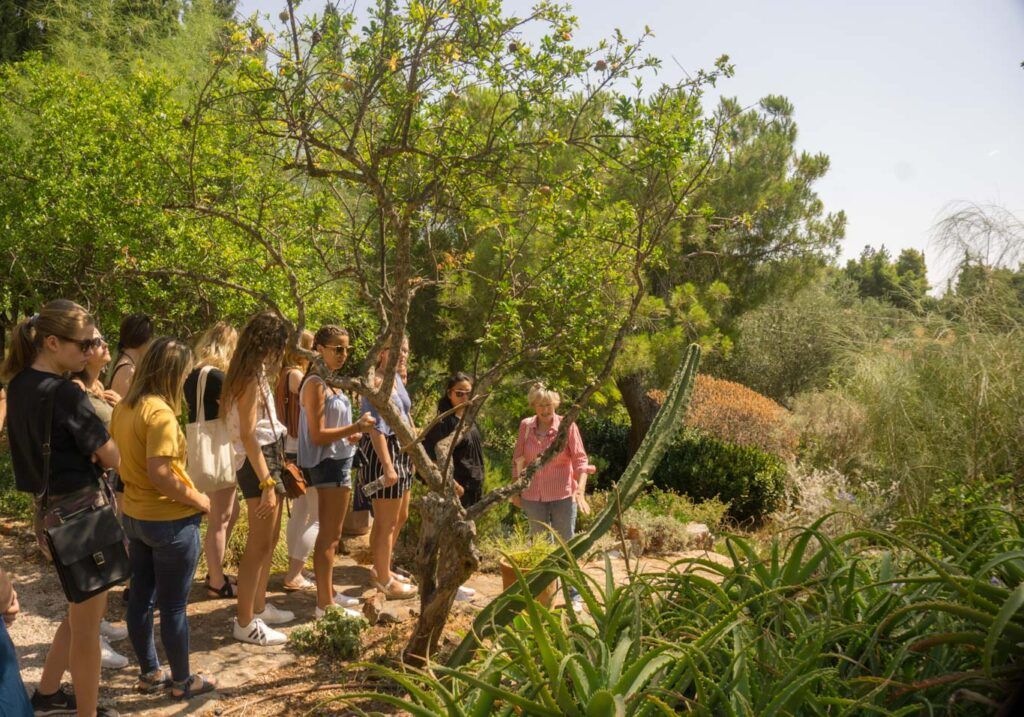
Class visits the Sparoza Mediterranean Garden
‘The Present Past: Re-imagining Greece through Heritage’ is a CYA summer course that focuses on a journey – literally and metaphorically – into aspects of Greek heritage.
Last Tuesday, class visited Sparoza, an experimental garden at the outskirts of Athens.
But what is a Heritage course doing at a garden? CYA professor Athena Hadji explains: “We tend to associate heritage with the cultural. However, already in 1972, UNESCO decrees that the cultural and the natural are to be seen in association with each other in any matter pertaining to heritage. This is in fact the second garden we are visiting with ‘The Present Past’ class!”*
We joined their field trip to find out more. After a short drive to Paiania, an area very close to the Athens International Airport, we were welcomed by Fleur Pavlidis, an expert gardener who gave us a tour of the 1.2 hectares innovative garden.
First, we sat at the terrace of the stone house that is built right in the middle of the hill to learn more about the history, the aim and the principles of the Sparoza Mediterranean Garden.
It was created in the 1960s by Jacqueline Tyrwhitt, a British town planner. She was a pioneer in choosing plants that suit the conditions (in particularly plants that can thrive in Athens’ savage summers), a new and unusual idea back then. Since 1994, Sparoza is run by the Mediterranean Garden Society (MGS), with the permission of the Goulandris Museum of Natural History.
“This is by no means a ‘majestic’ garden with marble statues reflecting grandiosity or expense. Sparoza’s philosophy matches the aesthetic sensitivity of the gardener with the typically Mediterranean conditions of this Attica hillside. It is a place where beauty and climate compatibility go hand in hand” Pavlidis explained.
Next, we walked around the garden, observing the various colors and smells, the wildlife, as well as the beauty of its simplicity. The human presence is discreet but ever-present. Sparoza is run and cared for by its custodian Sally Razelou, one of the founders of the MGS, with the help of many volunteers.
At the end of our visit, students enjoyed the opportunity to have a chat with Sally Razelou, over fresh lemonade and other homemade delicacies!

Fleur Pavlidis shows students the two adjoining pools of the garden, home to water-lilies and tiny mosquito-eating fish!

Sally Razelou invited CYA professor Hadji and students for a chat at the terrace of her beautiful house

The Sparoza nursery: here plants are propagated from seed and cuttings

Fleur Pavlidis gives students a tour of the Sparoza cactus and succulent garden area
* Earlier in July, class visited the Marc de Montalember garden in the medieval town of Rhodes






